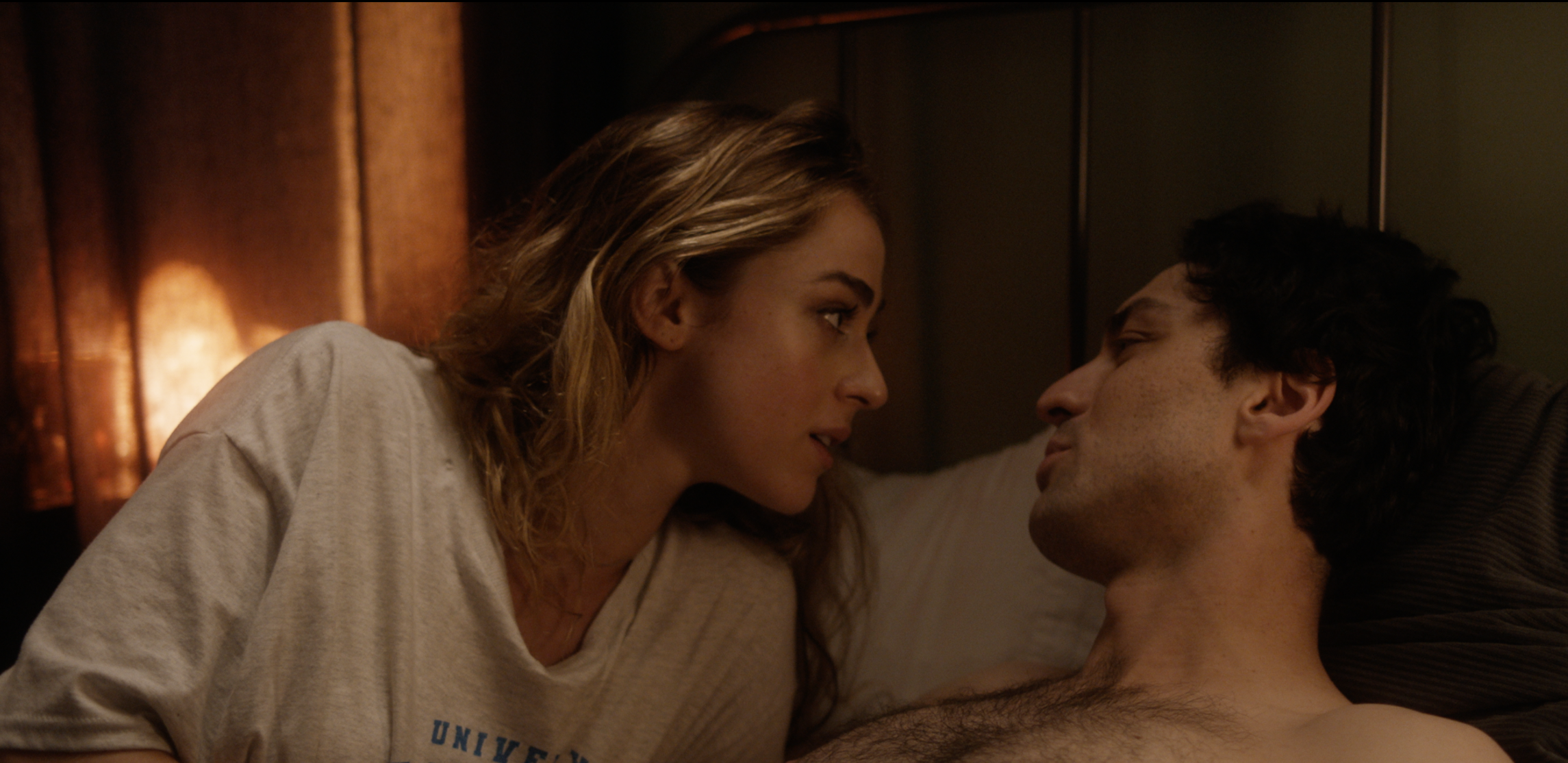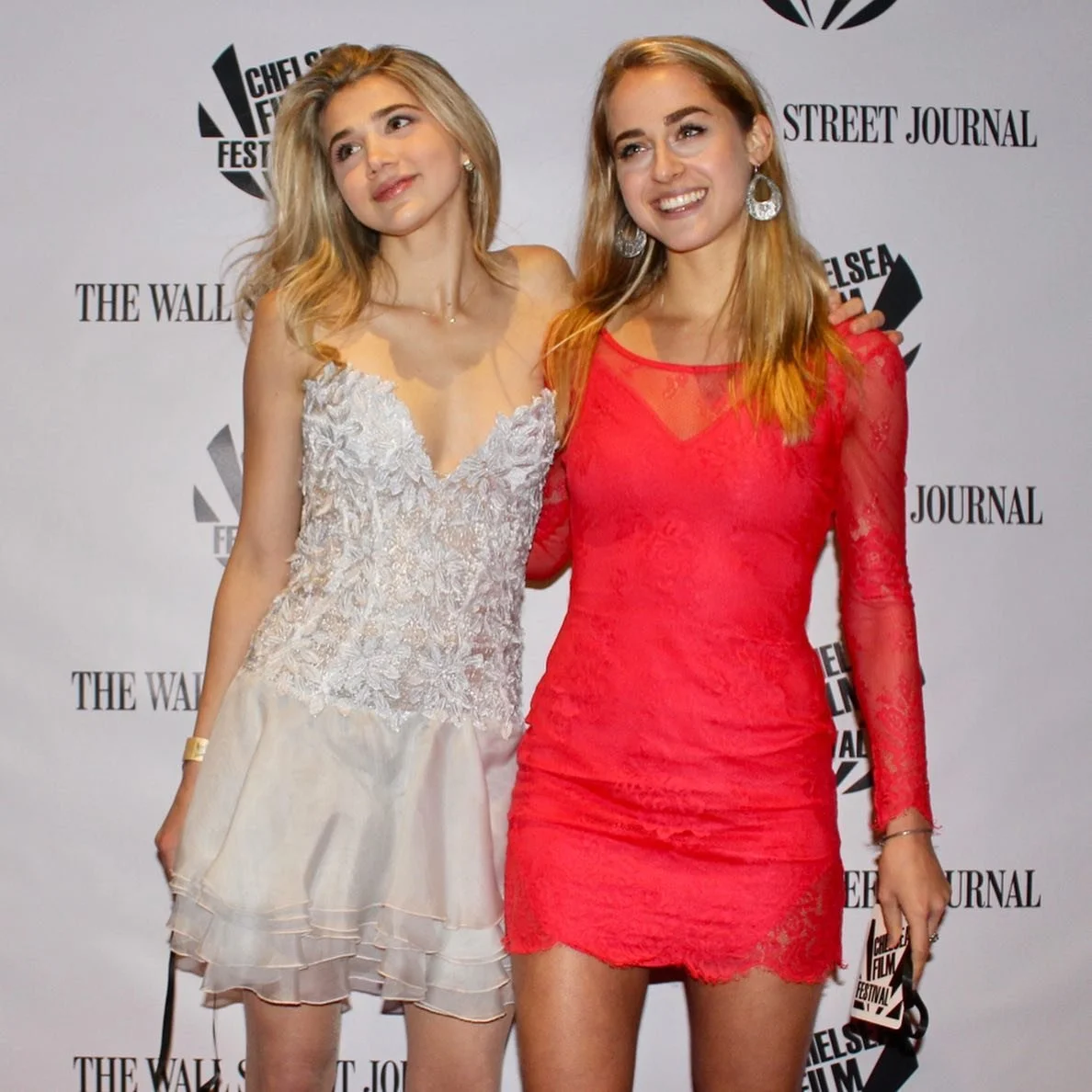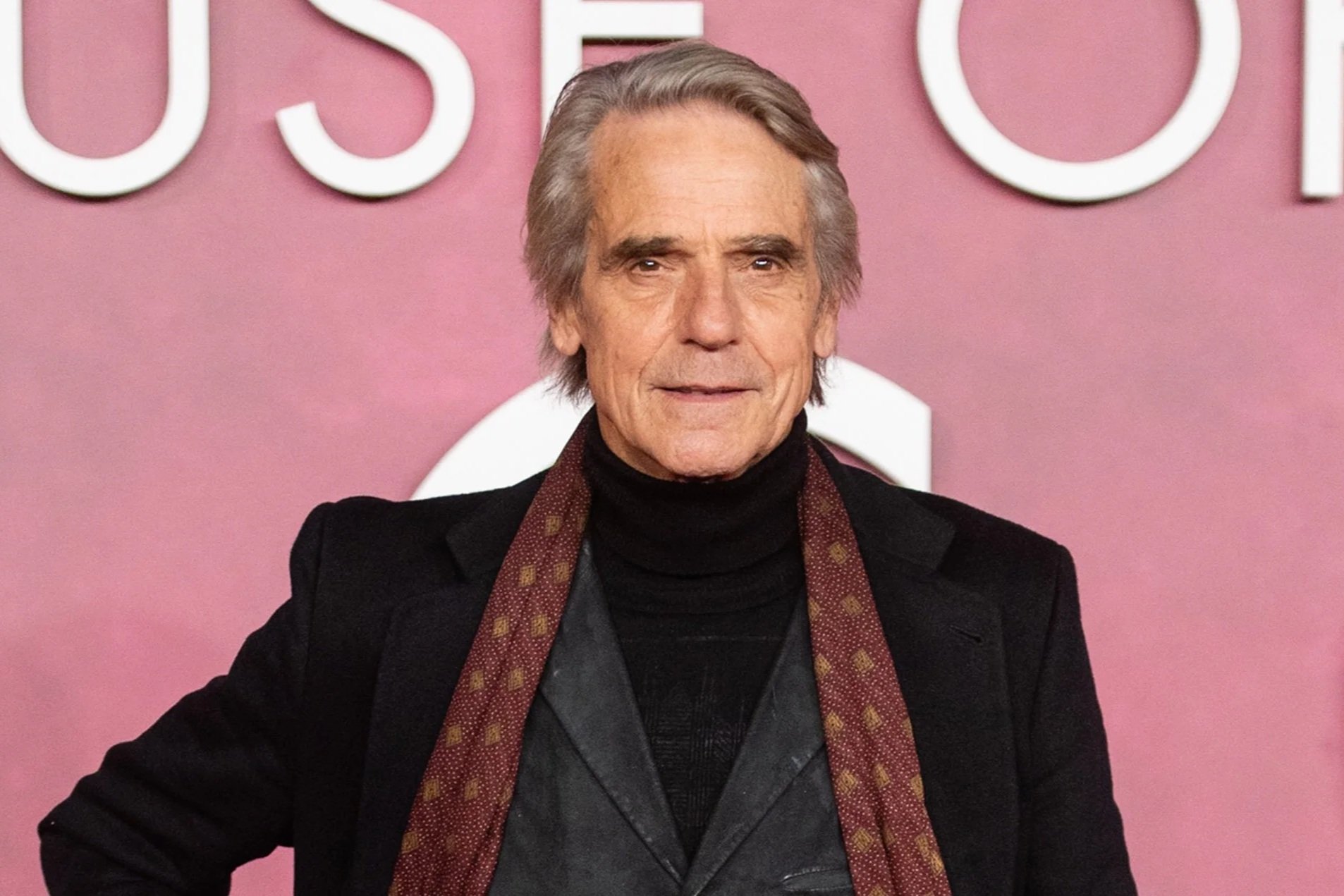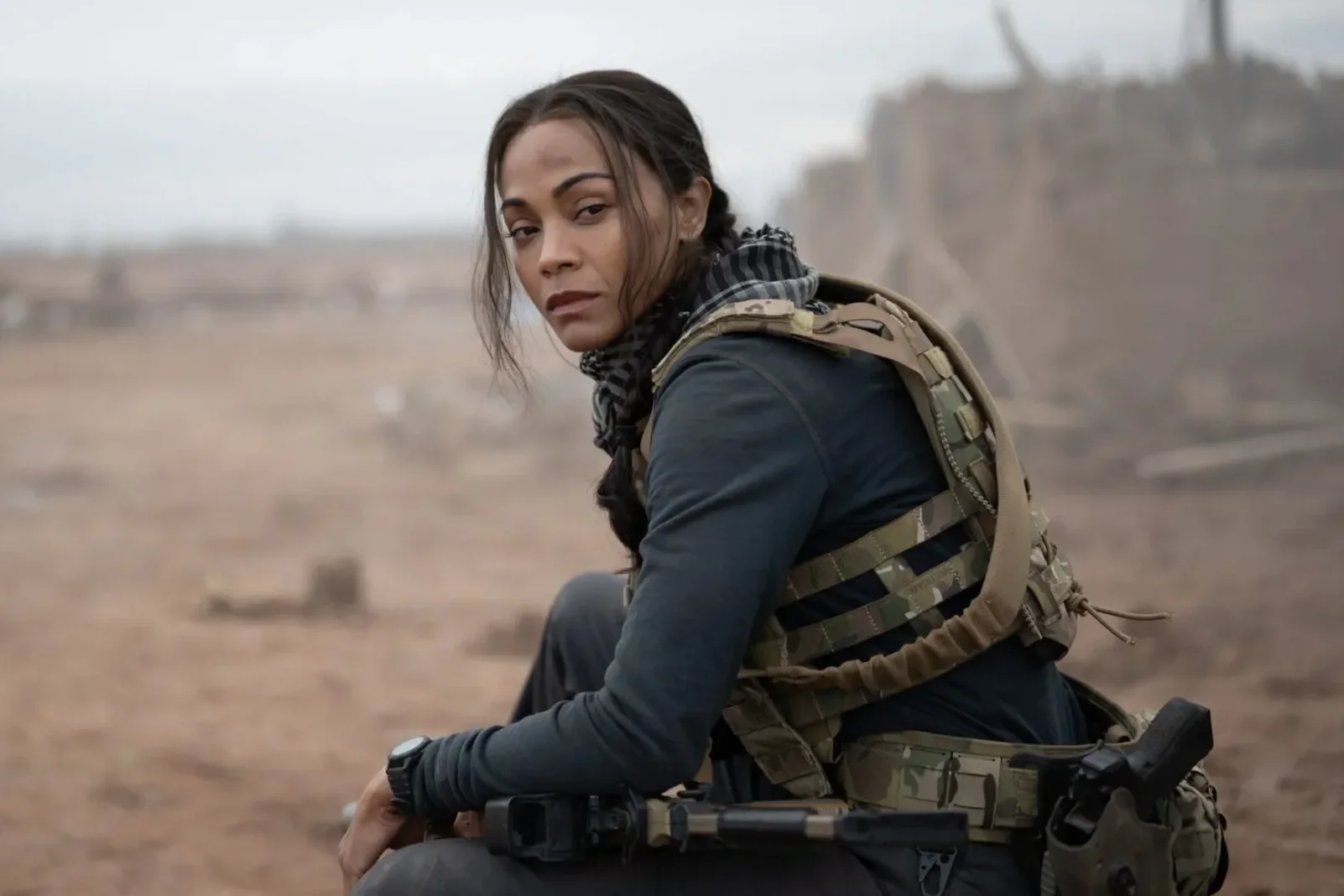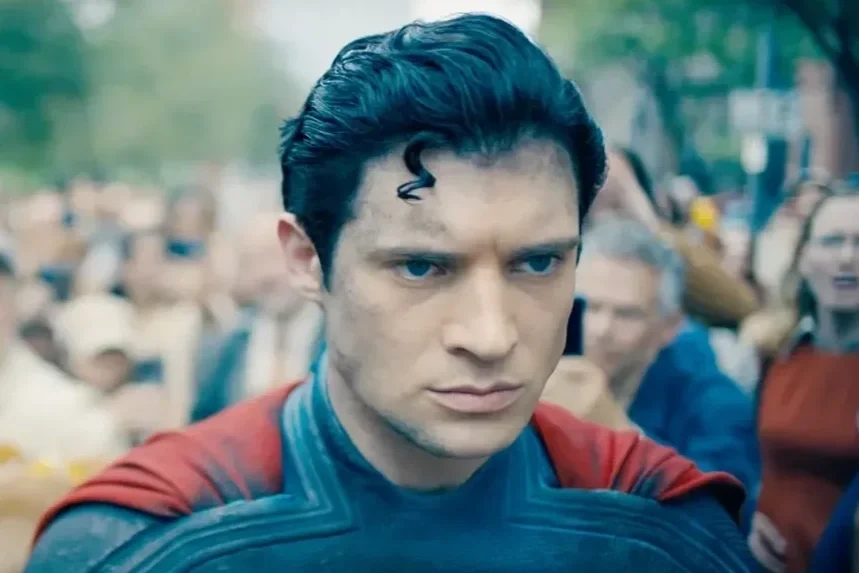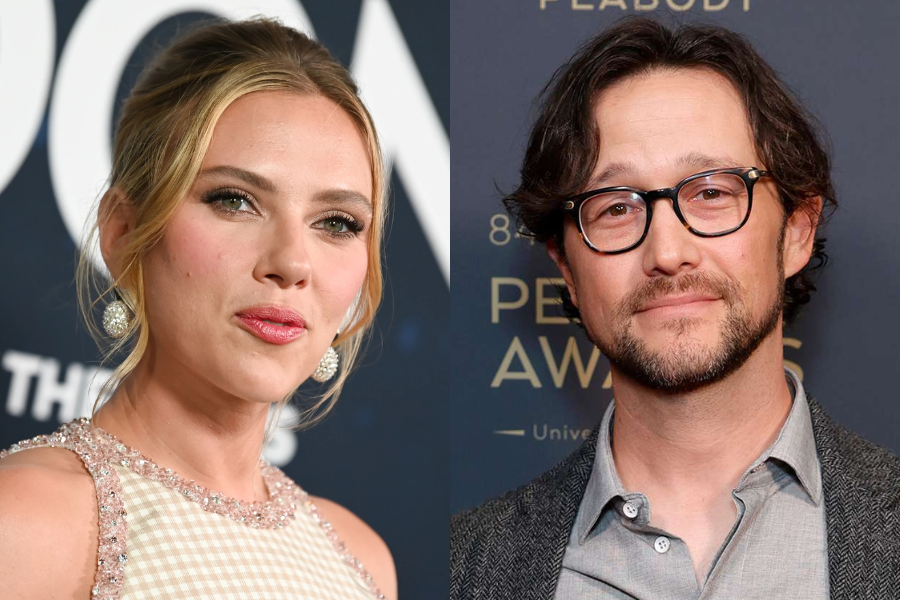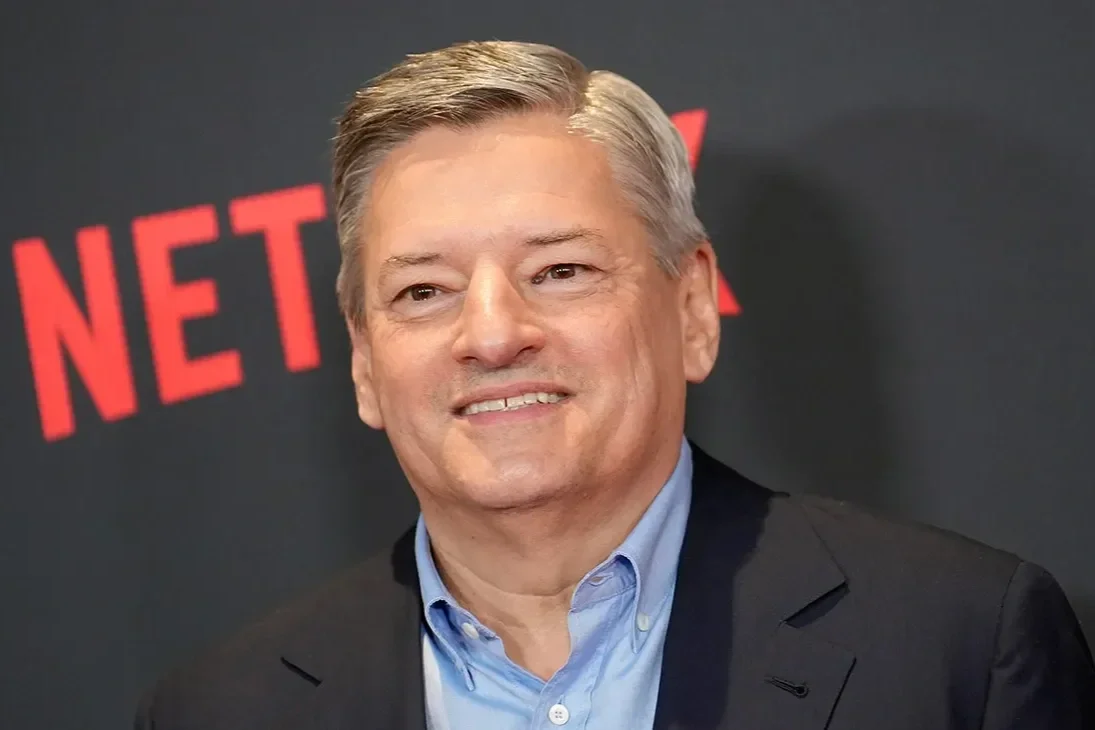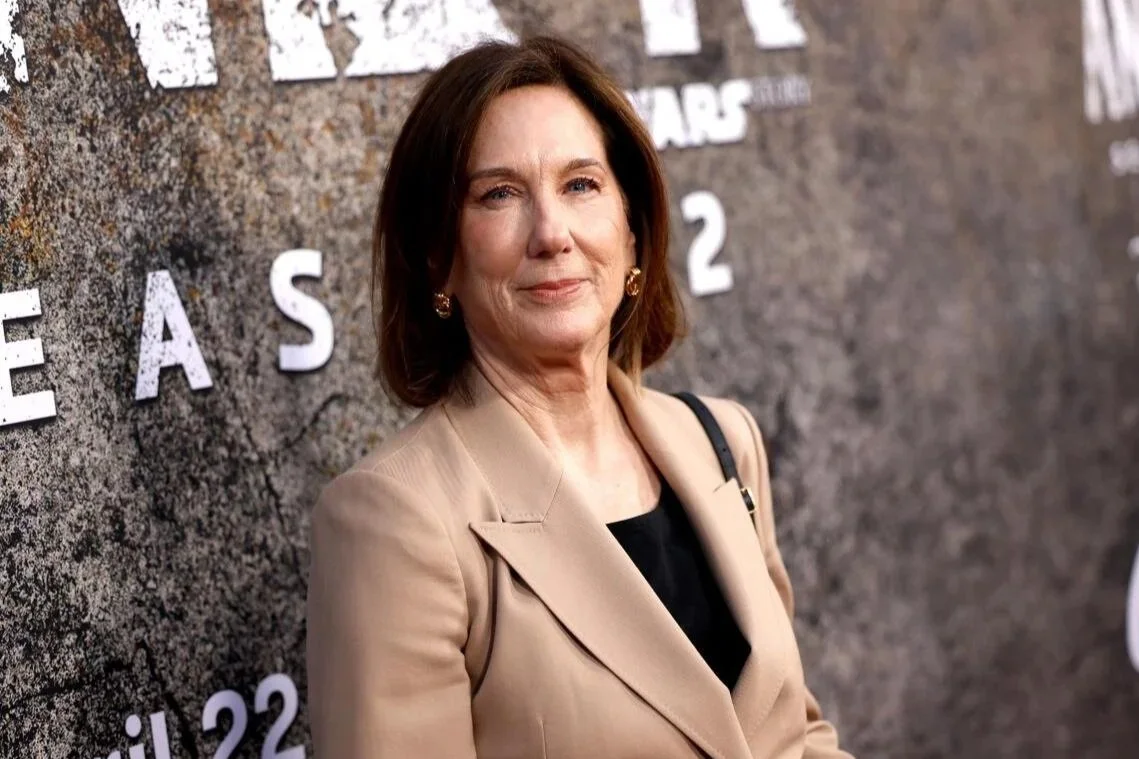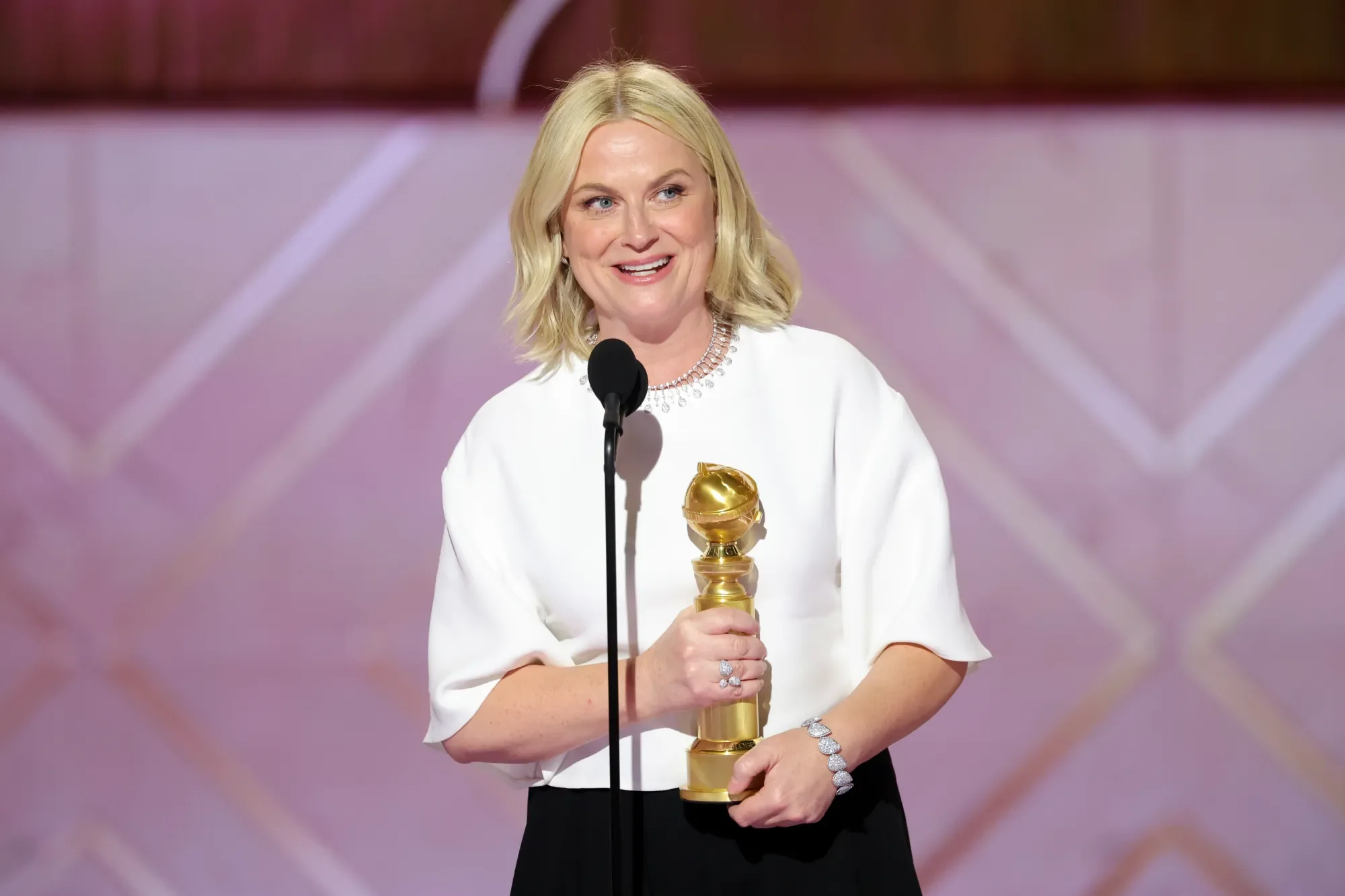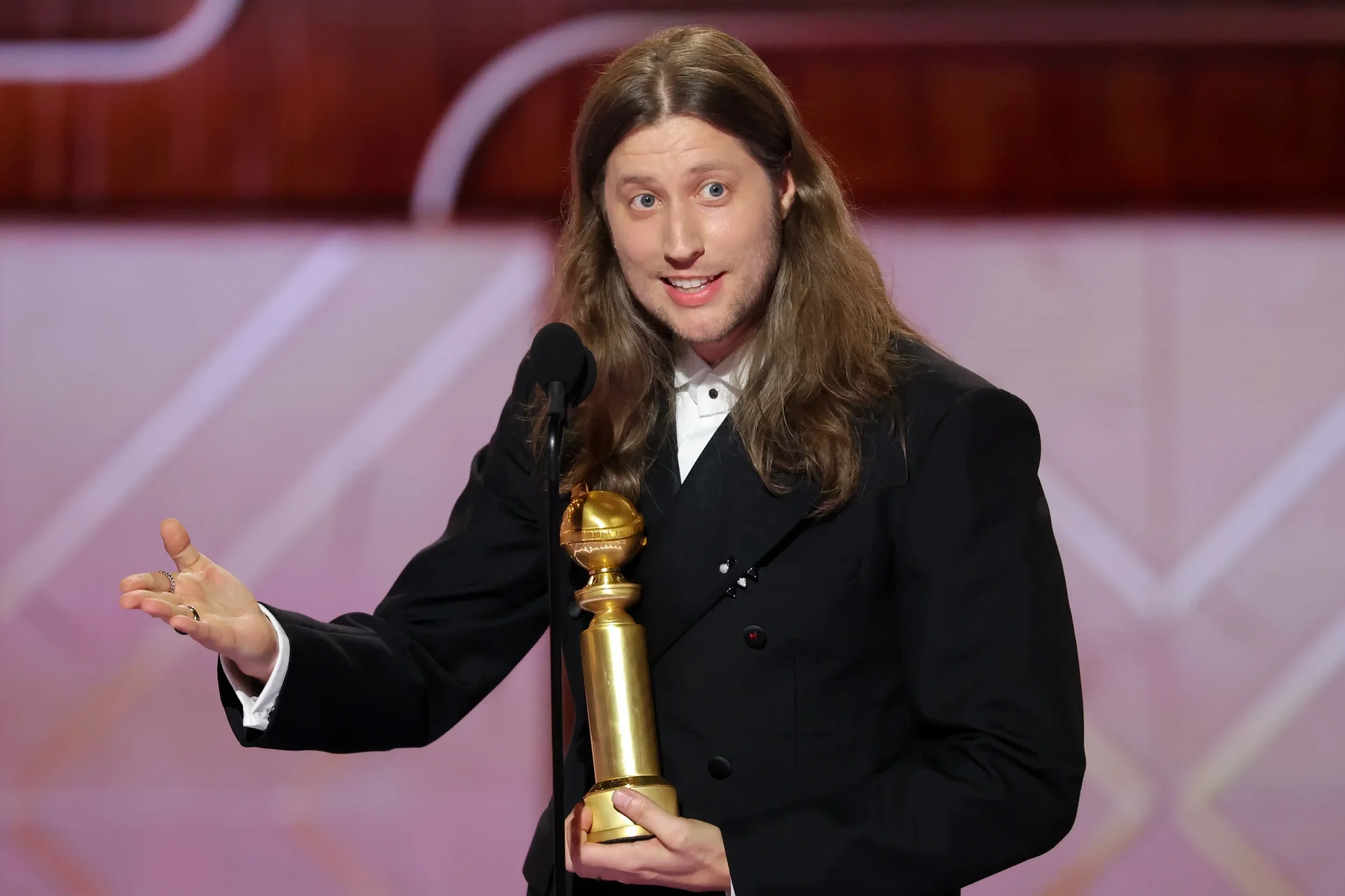Delilah Napier and Lucy Powers on How Creative Grit and Modern Dating Culture Influenced ‘Floating Carousel’
Interview by Nik Mohan | Written by Alexandra Paszek & Nik Mohan
Delilah Napier (left) and Lucy Powers (right).
Filmmakers Delilah Napier and Lucy Powers are about to premiere their fourth film, ‘Floating Carousel,’ at the Woodstock Film Festival on October 17.
Co-writers, co-directors, and stars of the upcoming satirical dark comedy sat down with Top Film to discuss their highly entertaining and ambitious project about the complexity of the modern-day New York City dating scene.
There’s so many moving parts [in the feature], where did the idea for this film come from? It touches a lot on modern dating chaos which makes me think it might be something personal.
Lucy: Both Delilah and my first Hinge date was with the exact same man. We originally thought that [idea] would be a great short film. And then we started hearing all these other stories [of dating culture] and we loved the idea of putting together an ensemble film that captured all those different stories we were hearing—that it wasn’t just happening to us—it was becoming endemic.
Delilah: There’s a complete lack of trust in people in this weird way. Having experienced—and this was a while ago in Fall 2021, so right after the pandemic—in this city of over eight million people, my best friend and writing partner literally ending up having the exact same date within four days of each other. It’s like; how often does he do this? Because his type was blondes [on Hinge]. We were just like what is he after?
Delilah: It was during the strike we were thinking of having short films, and we wanted the Shanay date [character from ‘Floating Carousel’ played by Julian Cihi] to be one of the short films—of these two mirrored dates and the friends putting it together. But then we had a few other friends chime in with amazing stories… and we thought maybe we should start a YouTube channel with weird shorts [videos] about dystopian dates. By the time we were thinking about raising money for a short film, we sort of wanted to try our hand in another feature since making ‘Voyeur’ (2019) was so rewarding.
Because there’s so many stories happening in this film, it could feel overwhelming, but feels very well balanced. Did you have any doubts during the writing process of “oh, maybe there’s too much going on” with the amount of cast and characters, or did you trust yourselves to put out the best project you could?
Lucy: We were actually inspired because we were watching ‘Magnolia’ and films that we love, and also threw in ‘He’s Just Not That Into You,’ because it’s such an ensemble film with all these different people. And we were noticing that when a character comes in, even if it’s in the first ten minutes, if there’s a memorable moment, even if they come in forty-five minutes later in the movie, you remember it. And it’s different from reading a script because sometimes in a script you’re like oh, wait, what was that name again? But on film, you remember a face. So we were inspired to trust that audiences would remember someone.
Lucy Power (left) and Noah Kieserman (right).
Lucy [continued]: Putting it together, because it’s so episodic, we ending up shifting [in the edit] some of the scenes around so there’s three parts with an epilogue. You know, the first watch—I think all filmmakers experience this—you’re like wait, things aren’t working, oh no. And then we were able to move things around. It was lucky it [the film] ended up being so episodic, because we could choose which came first.
Delilah: We added a character literally the week of shooting a scene. For example, the kicking scene with Sasha [Elsie Hewitt] and Raul [Charles Justo], the meet cute where he asks her to kick him; initially it was just a knock [from the mother]. But given we had an apartment and a conjoined apartment that we had access to, we were like, how rewarding would it be to see the mother? And our producer was like guys, are you kidding me? Now you’re adding another $250 day player to say a name… We cast the person twelve hours before they came on set. Even just adding the mother character who has a one word line, I think it added a lot to that scene.
Going back to the date scene where your character [Delilah] goes out with the same person Lucy’s character meets with earlier, you reference your feature film you made as a college thesis [‘Voyeur’], what is it about filmmaking that has you gravitating toward that cinematic art form above traditional theater?
Lucy: We both grew up doing theater and loving theater. We were both theater majors. We did eight plays together in school. There’s something about a play within a movie or some over-the-top theater moment that’s just really cool because there’s so many layers; you’re watching actors play characters and watching those characters be in the film. I think we just really love exploring—there’s so many crazy characters in the theater world.
Delilah: Both of us have gravitated toward screenplay writing and making movies together. An interview I was listening to recently with Jay Duplass; he was saying how he thinks indie film is the next Off-off-Broadway. And it’s funny because my parents met in New York in the ‘80s doing Off-off-Broadway. And I think, [now] sadly New York has less of an accessible artist bohemia. Now Off-Broadway is so hard to get in to, and Off-off-Broadway is even more… I feel like just with times it changes. Filmmaking is more accessible than it was in the ‘80s and ‘70s. Scorsese was doing indie films. It’s different. Every time period shifts.
With the process of writing, do you find it easy to bounce ideas off of each other, while also saying “no” when something might not work?
Lucy: I think bouncing ideas off each other is the best part of the process. We love our brainstorms and that can be the most fun part of the process—that first draft; coming up with all the different characters and situations. A lot of times we’re inspired by our own lives which can help too. We can take from characters we know and things we’ve experienced together to make it as specific as possible… I feel like we try out a lot of ideas, even if that means writing out a whole scene and then if it doesn’t work we’ll both almost immediately know.
Delilah: We’re both slightly quicker than precise when we first go. We’ll happily write a ten page scene and then immediately delete it. I have a friend who’s a brilliant writer but he truly likes doing a page a day, and really just sits there thinking about each thing, where I think Lucy and I are like a stream of conscious: go-go-go. And then it’s like, what in here can we salvage?
Lucy Power (left) and Delilah Napier (right).
Napier and Powers talk using real New York City locations that locals might recognize.
When it comes to acting and directing, how are you able to play the characters and critique your own performances at the same time?
Lucy: Sometimes we can’t. Sometimes we just had to go off of feeling—many times—especially if both of us were in the scene together. If was just one or the other, we could watch behind the monitor, otherwise we’re just like okay, I think that’s not good.
Delilah: We looked at the set-up. We would look at the framing and trust our D.P and first A.D. It definitely got stressful later on for the heist scene; that was hard.
Do you let your cast go off-script and improv, or are you the kind of directors who prefer having your actors say exactly as you’ve written the scene on-page?
Lucy: We have Catherine Curtin in the film… [she’s] wonderful. She is a brilliant improver [improvisation] who can just take what’s on the page and riff on it. We already knew that about her so we just happy to let her go and it just gives you so many options in the edit because you can pretty much choose anything you want. Other times we really like the precision of the writing, especially if it’s a scene where there’s multiple characters; like that dinner scene in the beginning is pretty word-for-word. But when an actor is that brilliant comedic voice, it’s really fun to see what they bring.
Delilah: We’re always happy to see what actors bring. I think it’s true: for comedy I think we’re much more lenient for improv, which I think Cathy’s moments are always usually very comedic. But if it’s a scene where certain beats need to happen in certain places, we’ll be a little bit more like; can you [stick to the script]? But if an actor asks to change a slight word because it sounds more natural, we’re very accommodating of that.
About one of the film’s themes being loneliness; people are more connected than ever through tech and social media. Why do you think people are more lonely than ever before, even with immediate access to everything?
Lucy: I think that something we were trying to touch a little bit in is this idea that an app—especially a dating app—connects you to millions of people in any sort of metropolitan area. They’re all strangers and it can give you this sense that there’s unlimited options, and people feel like there’s always someone else. You’re connecting with people but it’s not real intimacy. I’m sure everyone here knows that sense of swiping… It just feels very inhuman sometimes.
Delilah: And I also just think that the time period we’re literally living in right now feels very unsettling. So I think people are in this very unstable, insecure place. There’s just so much ostracization in society. There’s a lot of fear in getting intimate with people. With the apps and even social media, it gives this false sense of access and connection to intimacy when actually, at this time I think it’s viewed as something very replaceable.
Napier and Powers on the complexities of modern dating and approaching it comedically.
Brittany Bradford (left), Glori Dei Filippone (middle), Jon Rudnitsky (right).
What advice would you give to your younger selves, specifically the younger versions of yourselves that worked on ‘Voyeur’?
Lucy: I can say moments of ‘Voyeur,’ and even every film, feel like tunnel vision. And you have moments where you think like why am I carrying a fifty-pound piece of equipment up seven staircases? You just have these moments where you kind of can’t see outside of what you’re doing. But after ‘Voyeur,’ we were so happy we had made it. Every single hour felt worth it and it’s obviously led to this amazing collaboration. It’s always keep going. The reward of having made it, is [worth] ten-times the hardship while you’re doing it.
Delilah: I would’ve told ourselves to slate every shot. Because sometimes we didn’t think it was important. When we were running low on time we were like we’re editing it, we don’t need to slate it. But that would’ve saved us time in the editing room.
Delilah Napier (left) and Lucy Powers (right).
Delilah [continued]: We always think we could’ve had a slightly better sound mix. But at that point we also spent no money making that film, and sound is one of the bigger costs… it was such a learning process. The fact that we’re ultimately proud of the product, it’s hard to regret things.
On the recent Reddit Q&A you did, you were asked who your favorite superhero is, and Lucy, you replied with Clarice Starling from ‘The Silence of The Lambs.’ What genres would you explore in the future, and would you even consider doing a thriller-mystery like that?
Lucy: Definitely. In fact we kind of started writing a script—we’re on the second draft of it—that’s way more like a thriller, dark comedy that takes place on a yacht. Delilah and I love all genres. We’ll always have a bit of dark comedy at the base of our pieces… I don’t know if we’d ever do a strict horror but ‘Silence of The Lambs’ has that psychological element.
What would you like audiences to take away from this film?
Delilah: We love laughing at ourselves. We think humans are so funny and their behaviours are so funny, and the way you act in certain situations… We hope other people are able to relate to the characters and kind of laugh at ourselves, and hopefully in that there’s a way to build community and have a collective cathartic release.
Lucy: Sometimes laughing together at something that happened in the moment that’s a little unsettling can really bring you together with someone else.
[SPOILER TALK]
I think that’s why the epilogue you did in the movie feels so refreshing. There’s no big social status, just people existing as they are. But let’s talk about the final scene when your character [Delilah] wipes out on the beach… Was that a real fall? It looked too good to be intentional.
Delilah: That was very much an outtake. At that point I probably slept three hours. I remember we were all delirious, I was very dehydrated, it was hot. And we were always running—and I fall a lot when I’m not exhausted—I just completely topple on the rocks. Our sound guy was like that was my favorite take, you better use that, you don’t get stuff like that in a UPA feature because you have to get stunt coordinators and do all these safety calls. It was actually pretty bad, I still have a mark from it… like I was gushing with blood.
Delilah [continued]: We were looking at the takes and there something about that fall take that made it more real. Already there was a certain surrealism to the epilogue section, and while it’s not laugh-out-loud funny, we kind of wanted a little bit of a tongue-and-cheek in that now we’re all in these matching outfits. We went from being in a city where we had so much choice and yet felt trapped, and now we’re in this place where we kind of have no autonomy because our schedules are delineated for us, yet we feel more free. We kind of felt the fall broke some of the surrealism and brought us back to real life.
TRENDING NEWS


